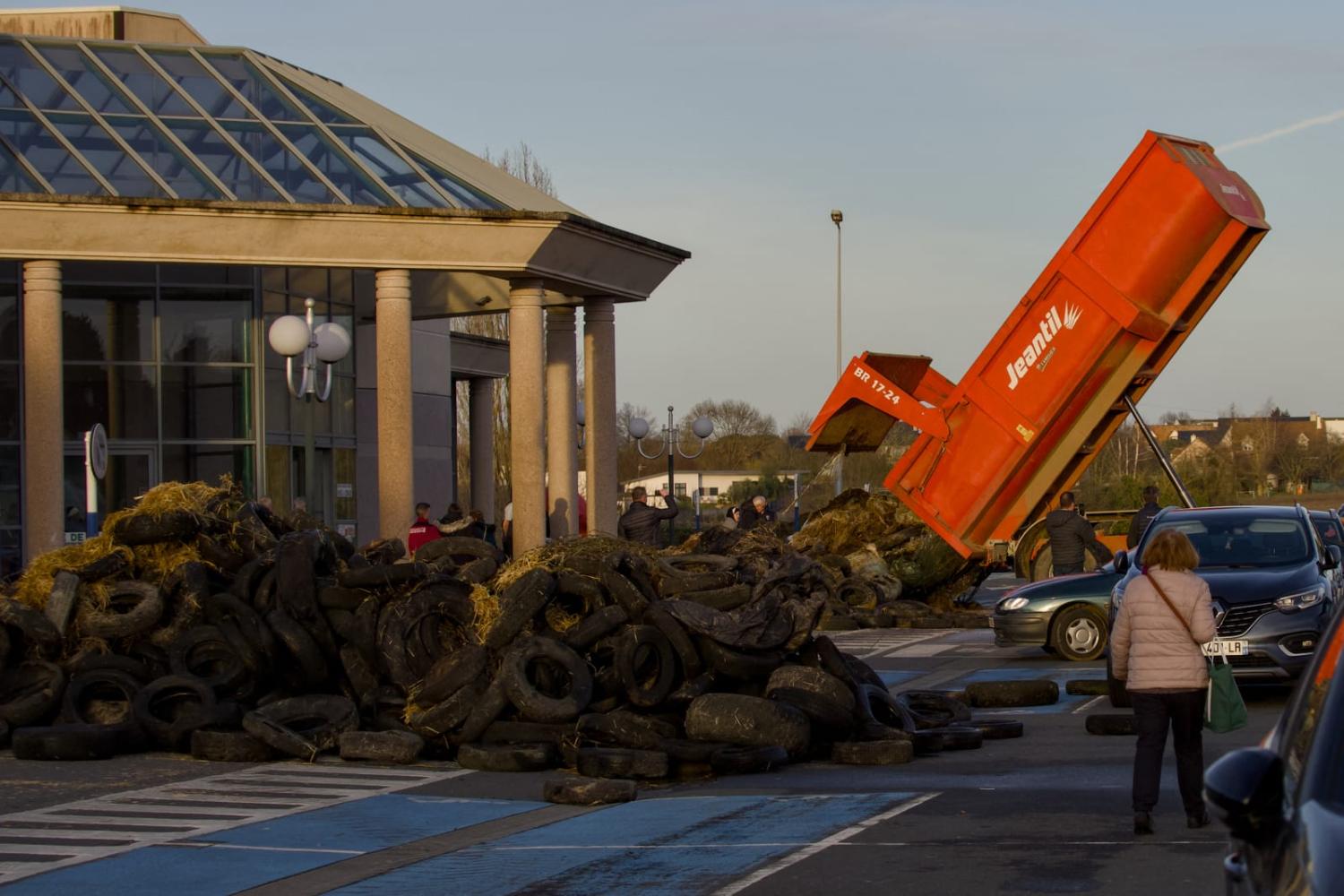The European Union has abandoned a plan to reduce pesticide use by half across the continent by the end of this decade. It follows widespread demonstrations from local farmers in recent weeks, which has seen roads blocked with tractors and manure dumped outside parliamentary buildings. The protest are linked to rising costs –with fertiliser and energy prices a regular complaint – and a perception of heavy-handed regulation both within their own countries and across the EU, some of which is linked to the EU’s climate change-related policies.
The European Green Deal is under particular scrutiny. While there is support for renewable energy to help address the climate crisis, others argue that fossil fuels and nuclear power are more reliable.
Concerns to extend the suspension of import duties on cheaper Ukrainian agricultural exports in Europe until June 2025 has also raise the ire of European farmers. As has a pending major trade deal with Mercosur, the Latin American economic bloc comprising Argentina, Brazil, Paraguay and Uruguay. Farmers argue that such trade agreements, reducing tariffs on agricultural imports, would lead to unfair competition.
Meantime, Russia’s invasion of Ukraine has also focused European attention on ensuring the security of energy and how to grapple with the rising costs that have resulted. This has left policymakers and governments struggling to meet the demands of multiple stakeholders while also seeking energy independence along with food and energy security.
With EU parliamentary elections in June, the move to withdraw the pesticides plan, at least for now, can be seen as the EU backtracking on legislation due to significant criticism. It is not the first time this has happened, either. Other agriculture-related EU legislation in the pipeline has been scrapped. But reactions have been mixed. While the decision pleased the European farmers’ lobby, some politicians and environmental advocates saw a failure. It is a sign of the political implications stemming from a fractious time internationally – and with farmers drawing support from Europe’s right-wing parties there is the likely prospect of further compromises.
This carries implications for Australia. Long-running free trade agreement negotiations with the EU, Australia’s third-largest trading partner, had already collapsed last October, and talks now appear even less likely to progress. With the unratified EU-Mercosur FTA under fire, there is also a pushback against Canberra’s demands for greater market access in Europe.
The reactions might be different in Australia and the EU, but the big issues being confronted are familiar – cost of living pressures, including food inflation, which while falling, remains a significant concern. Farmers in Australia argue that supermarkets, which hold significant market power, are making record profits while paying them poorly. An inquiry into price gouging recently found that supermarket profit margins were higher than pre-Covid levels, and that food prices had increased above the inflation rate.
Energy policy in Australia is also spurring angst. Although Labor and the Coalition have vowed to achieve to net zero carbon emissions by 2050, the Albanese government has pledged to achieve 82 per cent renewables by 2030 – only for critics to argue that this is close to impossible. Interest around nuclear energy has also been reignited, with Opposition leader Peter Dutton arguing in favour, and the government rejecting the prospect.
While this hasn’t led yet to the appearance of manure on the doorsteps of parliament in Canberra, clearly politics is being stirred by international forces. And, as the experience in Europe shows, it is a difficult balancing act to address both the immediate concerns of energy security, food demands and to address environmental concerns. There are lessons to be drawn.

